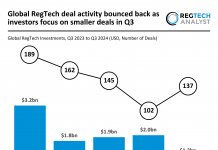Arizona State University and Israel’s Ben-Gurion University have established a consortium aimed at developing new ways to improve global cybersecurity.
According to Smart Energy International, the consortium will provide an award of up to $6m under a US-Israel Energy Center research grant. This, the consortium claims, will develop AI and machine-learning-based centralised defence and edge resilience solutions. The cost could potentially double to $12m over three years.
Established in 2016, the US-Israel Energy Center was formed to promote energy security and economic development between the two countries through the research and development of new energy technologies.
Also taking part in the project include US representatives Arizona Public Service, Duquesne Light Company, Georgia Tech Research Corporation, Schweitzer Engineering Laboratories and Nexant. For Israel, partners include solar energy firm Arava Power and Rad Data Communications.
The issue of cybersecurity is currently a hot topic – especially in the US right now. Earlier this week, operations at the Colonial Pipeline were brought to a standstill after a ransomware cyberattack led to the company taking certain systems offline to contain the threat. The Colonial Pipeline is the longest pipeline in the US, stretching 2.7 million miles and transporting 100 million gallons of fuel daily from Texas to New York.
Later in the same week, the FBI declared that the cybercriminal behind the recent Colonial Pipeline was a ransomware variant known as DarkSide. A private advisory discovered that the FBI had been tracking DarkSide since October 2020. It is not currently known whether the ransom has been paid to DarkSide, who are known to have origins in Eastern Europe.
In April, President Joe Biden rolled-out a 100-day plan focused on rapidly strengthening US power grid cybersecurity.
The US House of Representatives also recently passed a bill that would create a cyber diplomacy office at the US State Department and boost US influence in global cyberspace.
The head of GCHQ Jeremy Fleming previously claimed the UK and its allies face a ‘moment of reckoning’ where the global direction of cybersecurity may not be ‘shaped and controlled by the west’.
Copyright © 2021 RegTech Analyst
Copyright © 2018 RegTech Analyst






